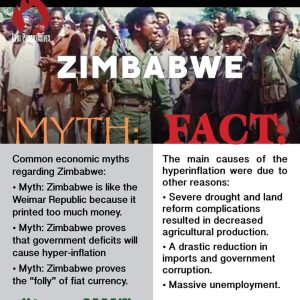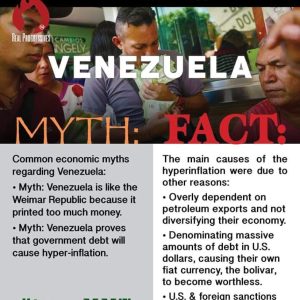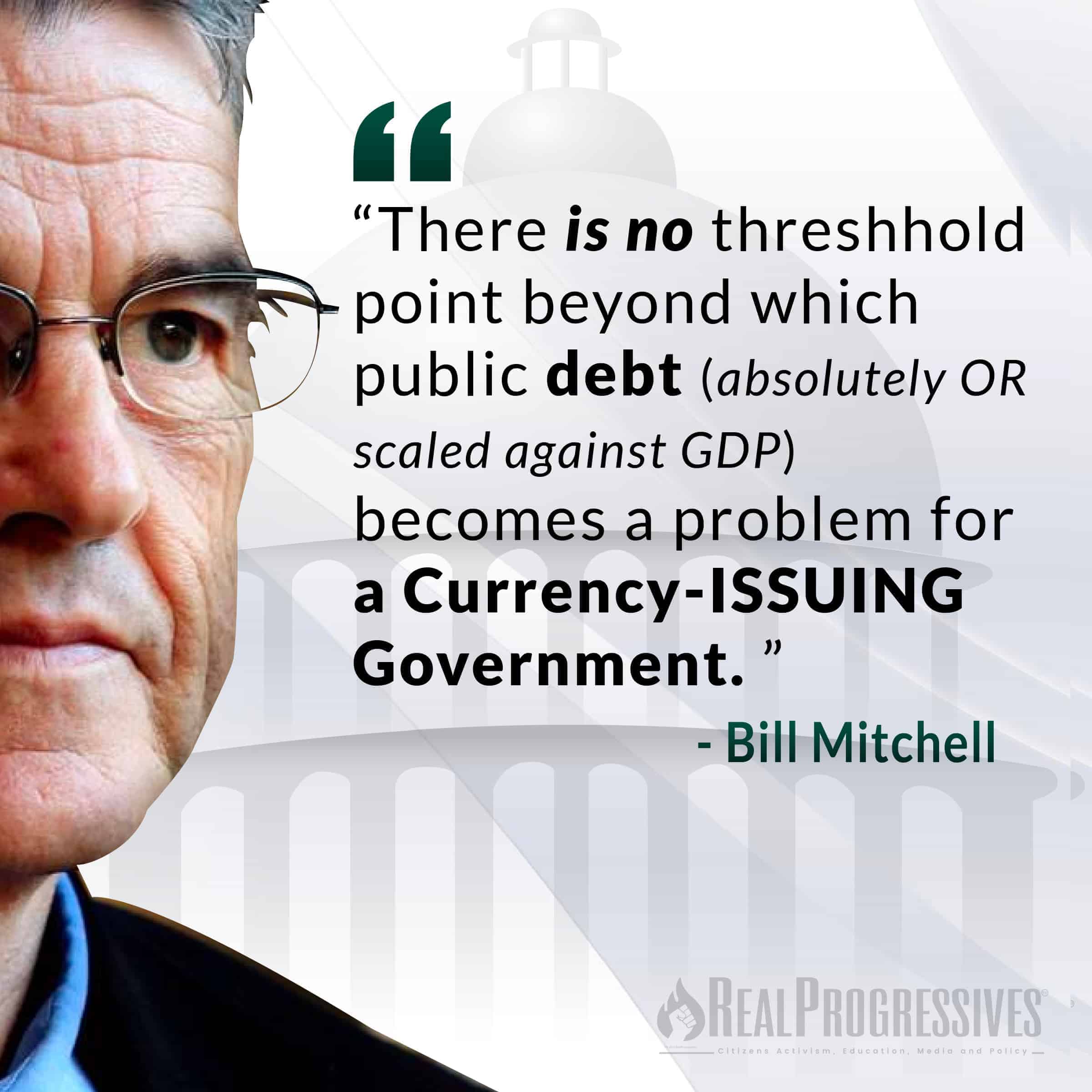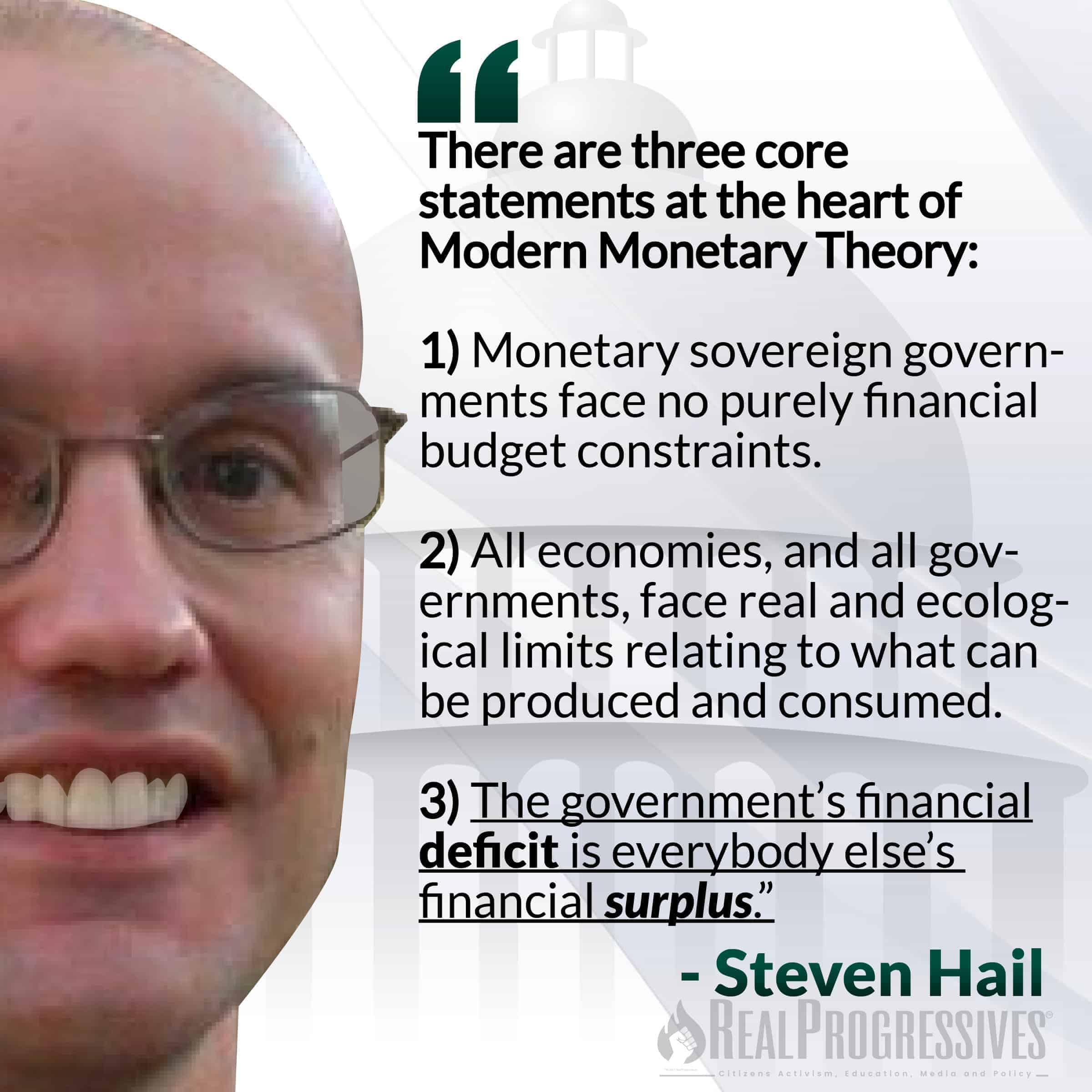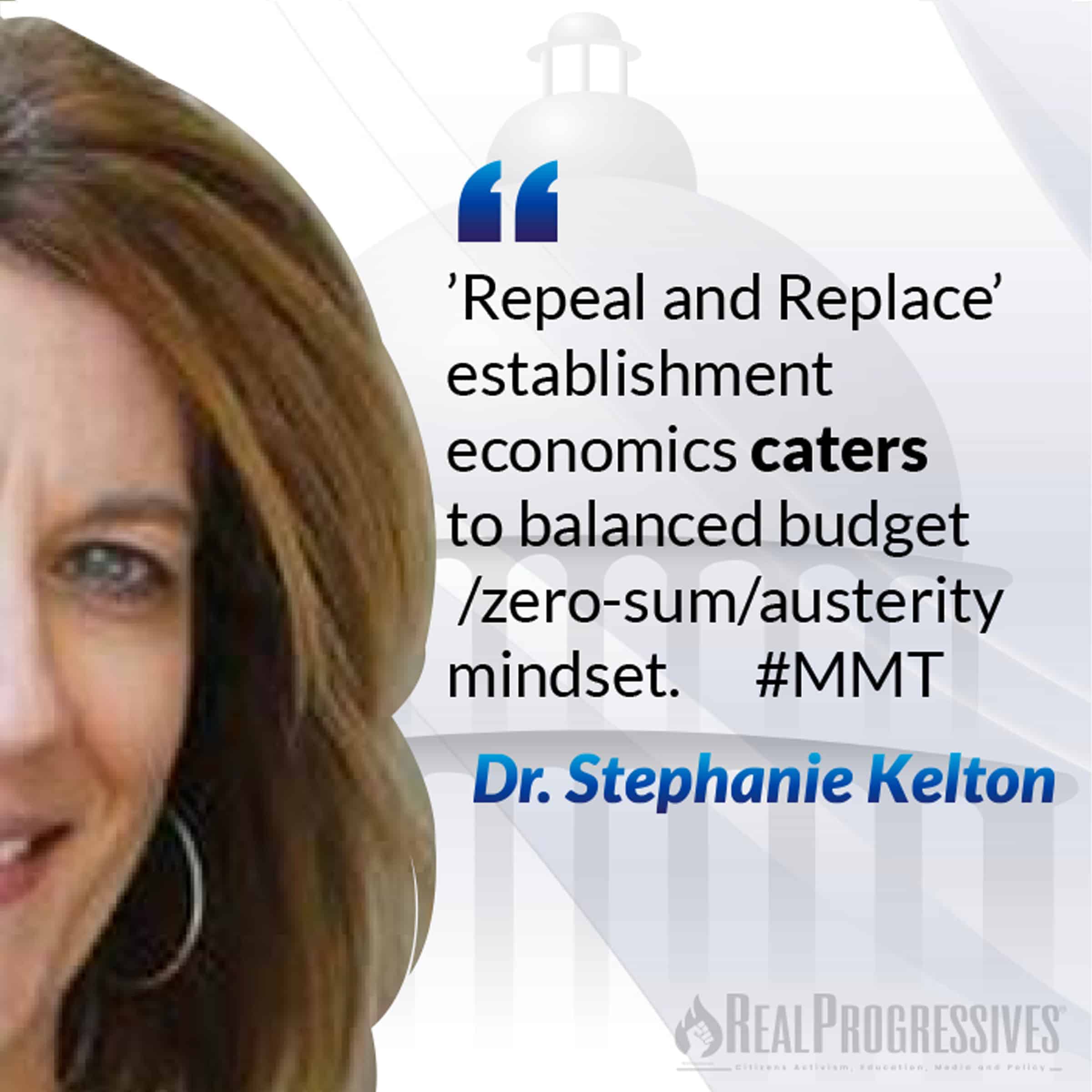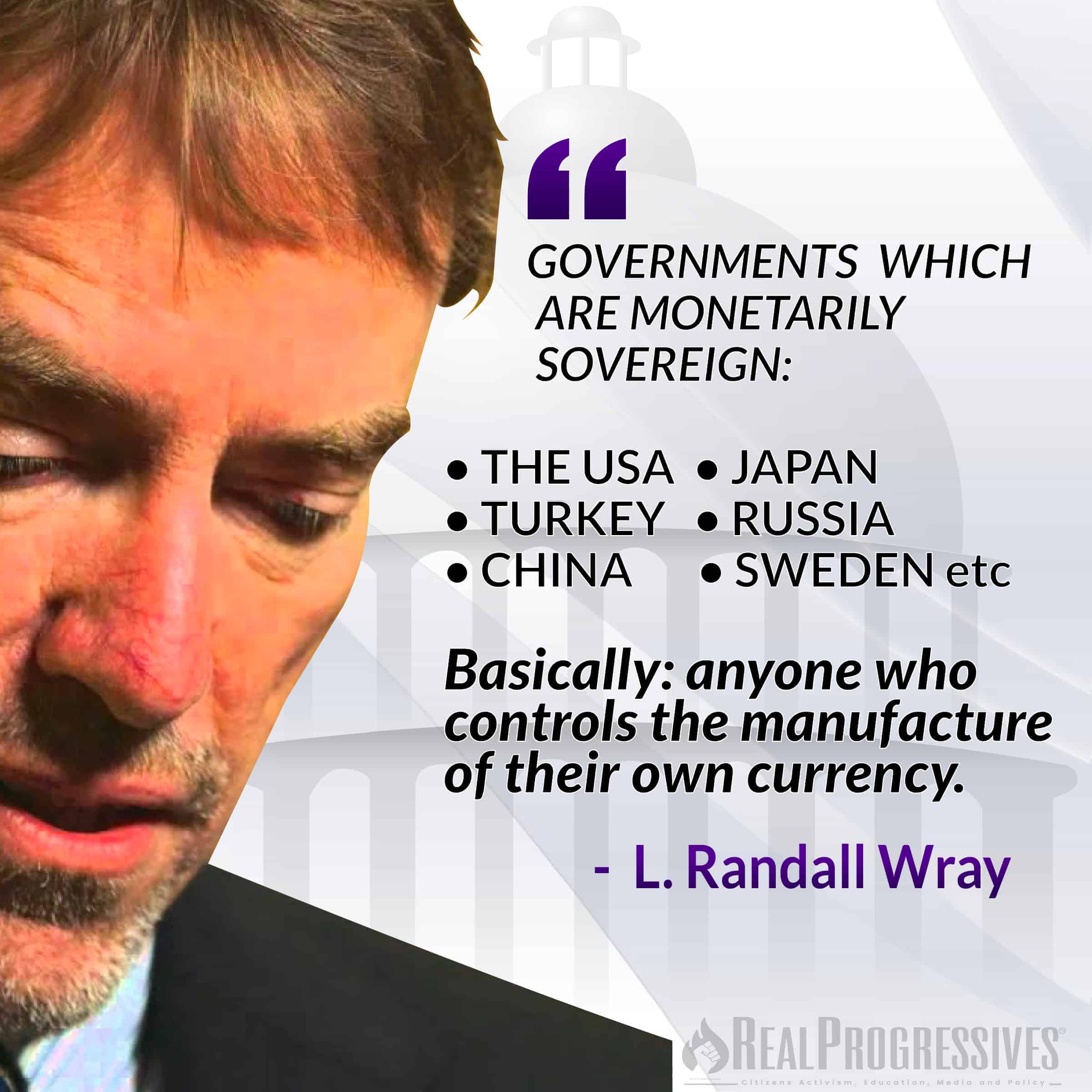Modern Monetary Theory - MMT
What is MMT and how could it completely change your perception of life in a nation with a sovereign fiat currency? Looking for MMT resources in other languages? Try our INTERNATIONAL MMT RESOURCES page.
"If we just keep printing money, we'll devalue the dollar!"
"Printing money will cause inflation!"
"OhEmGee the National Debt!!"
We've all heard loads of rumors...now it's time to get the truth!
Use the arrows or swipe through the slides to learn more.
It's not something to implement someday, it is exactly how our money works TODAY!!
The currency issuer is not constrained to balanced budgeting in the same way as a currency user.
No matter what politicians or talking heads on TV say, when a country issues its own sovereign currency, it can never run out.
That would be like the scorekeeper in baseball running out of points! Crazy, right?
As a matter of fact, in order for us to pay taxes in the first place, the government, the CURRENCY ISSUER, has to create (or spend into existence) the money. Then, we CURRENCY USERS have to find a way to get some money to pay our taxes.
Most governments, most of the time, will run fiscal deficits. This is not a matter of concern, and is indeed a good thing, as it means most private sectors will be able to run the financial surpluses they wish to add to their net savings.
The government’s deficit is our surplus – we should be glad all that money hasn’t been taxed out of the economy!
Browse our MMT focused articles and filter them using the tabs at the top to find a specific topic.
Browse our MMT focused articles and filter them using the dropdown tab at the top to find a specific topic.
- All Articles
- Federal Reserve
- Hyperinflation
- Inflation
- Job Guarantee
- MMT 101
- MMT Academics
- MMT Rebuttal
- National Debt
- Social Security
- Taxation
- All Articles
- Federal Reserve
- Hyperinflation
- Inflation
- Job Guarantee
- MMT 101
- MMT Academics
- MMT Rebuttal
- National Debt
- Social Security
- Taxation
MMT Takes Center Stage – and Orthodox Economists Freak
William K. Black May 27, 2023 * New Economic Perspectives
MMT is “obviously true” – the orthodoxy’s goal is to keep that truth from the public.
MMT isn’t ‘Close’, it’s ‘Here’.
Loren Hall August 29, 2019 Economic Justice Policy Essay
As soon as you read “MMT May One Day Be”, you know the author either doesn’t understand MMT, or doesn’t want you to.
MMT Is No Joke – The Joke is How Its Used
Nathan Locke February 7, 2019 Economic Justice Policy Essay
This is the real joke thats not funny. MMT is no joke – but how it is currently being abused is.A progressive application of MMT (again, not MMT itself) merely seeks to shift that ‘socialism’ MLK mentioned away from imperialist behavior and toward our own countrypeople.
MMT Detractors are the Ones Who are Flirting With Disaster
Loren Hall May 22, 2019 Economic Justice Policy Essay
Do not forgive them, for they know just exactly what they do.
MMT and The Deficit Debate
Brad Sandler August 11, 2018 Economic Justice Policy Essay
People often dismiss economic conversations assuming they understand the basics. The government collects taxes, spends that money and then some, causing deficits. Then, the Government borrows money to cover the deficit…
MMT and External Constraints
L. Randall Wray May 27, 2023 * New Economic Perspectives
To Fix or To Float, that is the question.
MMT 101: Response to the Critics Part 3
L. Randall Wray October 19, 2020 Economic Justice Education
In this piece, we study the interaction between the government and nongovernment sectors while retaining the consolidation hypothesis.
MMT 101: Response to the Critics Part 2
L. Randall Wray October 19, 2020 Economic Justice Education
MMT is frequently criticized for consolidating the treasury and the central bank. In this post, we will address these issues by tackling problems surrounding the nature of money and the role of taxes, and by beginning to deal with the consolidation argument.
MMT 101: A Reply to Critics Part 1
L. Randall Wray October 19, 2020 Economic Justice Education
This is Part 1 of a six part series in which we deal with critics of MMT. As readers of this blog know, our critics continually raise the same old tired critiques of MMT.
MMP Blog #9: What If the Population Refuses to Accept the Domestic Currency?
L. Randall Wray December 20, 2023 * New Economic Perspectives MMT Primer
The best kind of payment is an obligatory one—one that must be made to stay out of prison, or to avoid death by thirst. An obligatory payment that must be made in the sovereign’s own currency will guarantee a demand for that currency.
MMP Blog #9 Responses
L. Randall Wray December 20, 2023 * New Economic Perspectives MMT Primer
Comments and responses on the Modern Money Primer Part 9.
MMP Blog #8: Taxes Drive Money
L. Randall Wray December 20, 2023 * New Economic Perspectives MMT Primer
In short, to avoid the penalties imposed for non-payment of taxes (that could include prison), the taxpayer needs to get hold of the government’s currency.
Why we need to debunk the 'deficit myth' - BBC REEL
Government spending is increasing at an unprecedented rate to deal with the effects of the coronavirus pandemic. Many people worry this could burden future generations.
However, economist Stephanie Kelton, author of The Deficit Myth, argues that we need to rethink our attitudes towards government spending.
Could Modern Monetary Theory help us navigate our way out of this crisis – and even help build a fairer economy?
Producer: Dan John
Animation: Jacqueline Nixon
(Republished with permission from the BBC)
Weaponizing knowledge, one mind at a time.
Visit our seven focused Knowledge Areas.

















